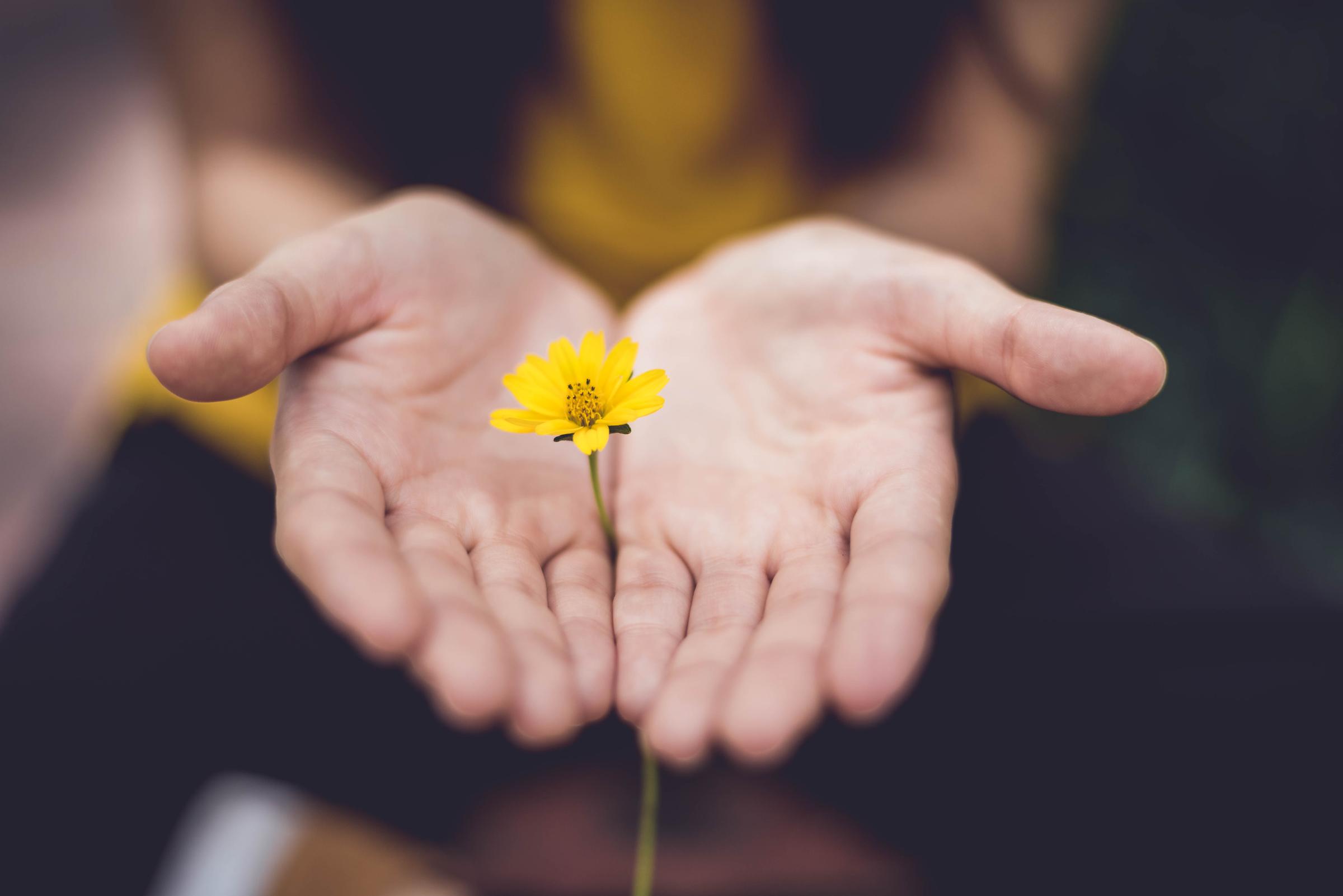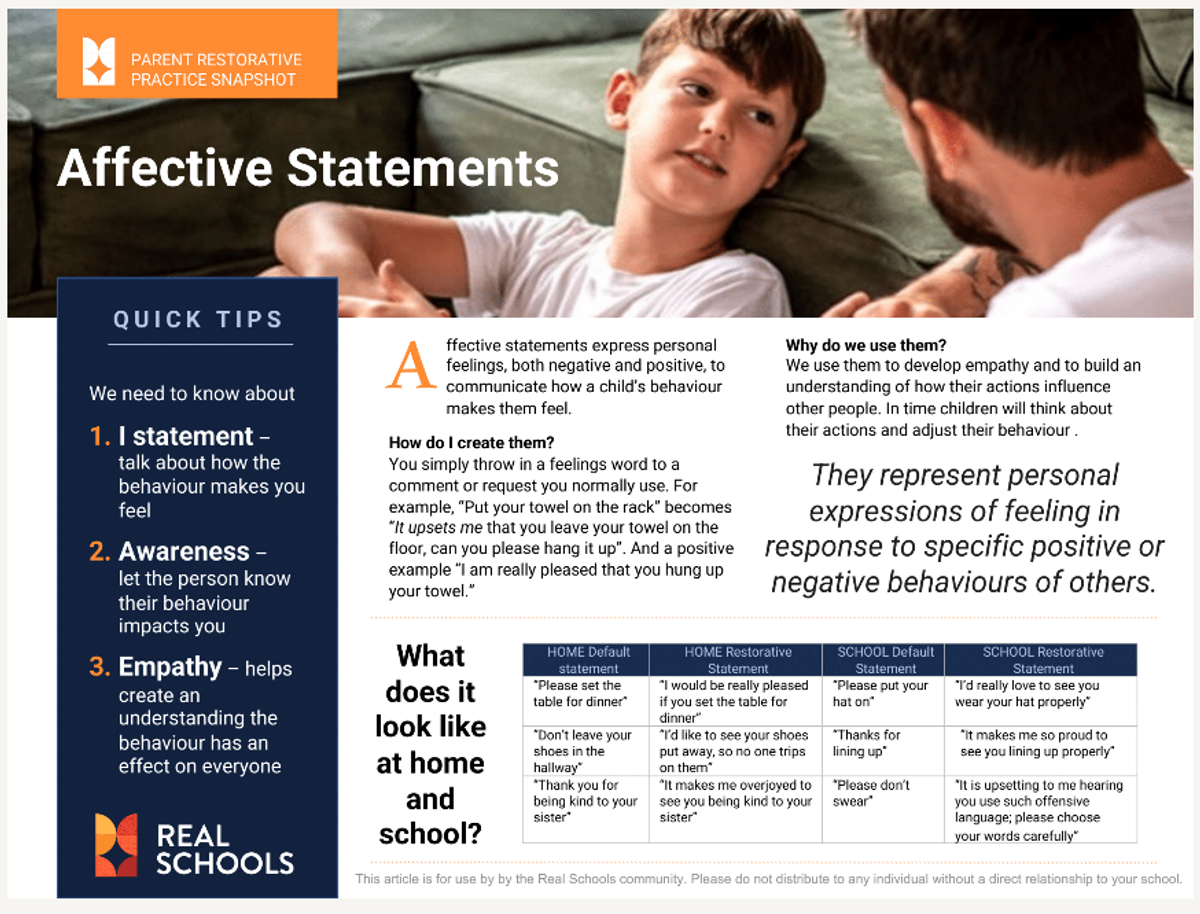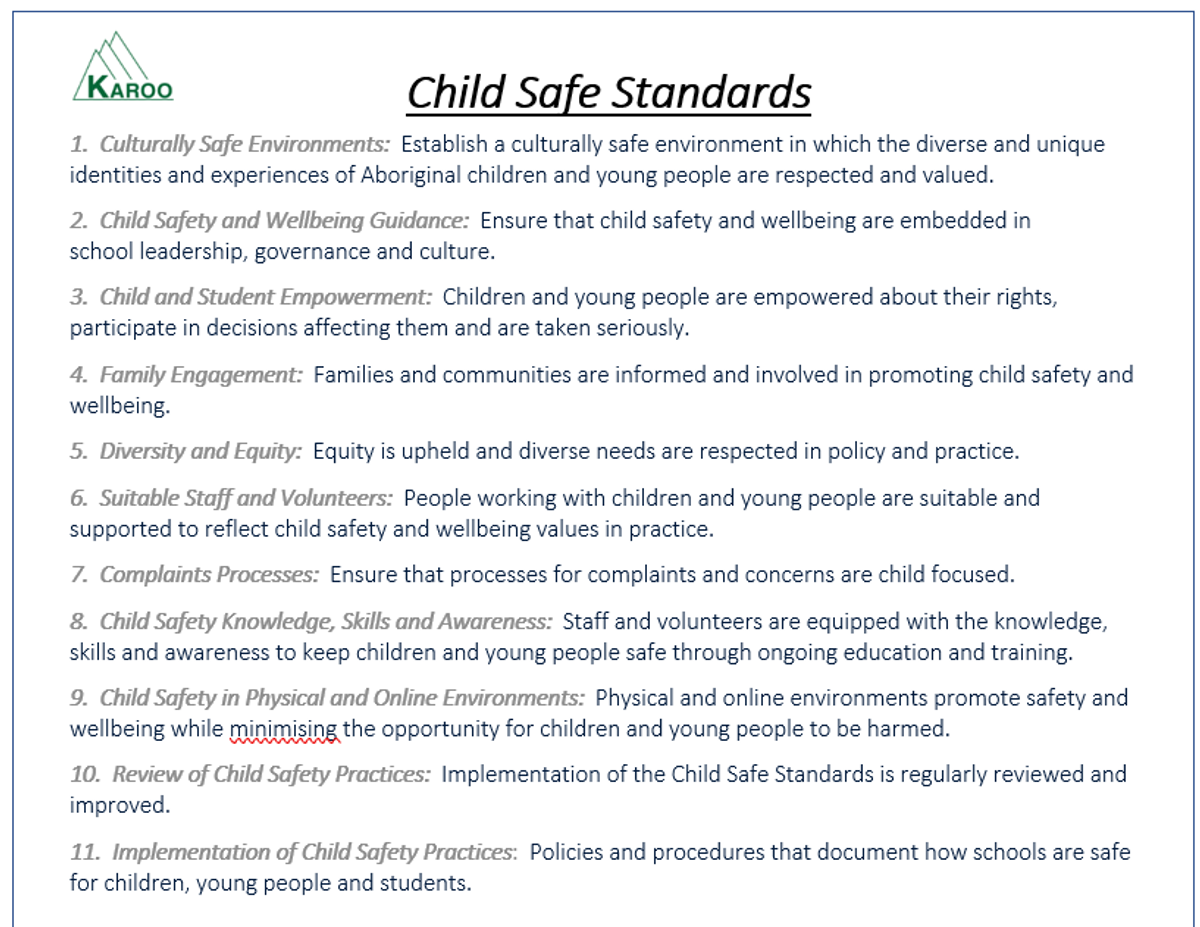Wellbeing and Inclusion
Mrs Courtney Hoffmann - Assistant Principal

Wellbeing and Inclusion
Mrs Courtney Hoffmann - Assistant Principal
Dear Karoo Community,
Restorative Practices and Affective Statements
As part of our ongoing learning and implementation of restorative practices, we continue to explore the different elements of the Restorative Continuum, as seen on Karoo PS's Student Engagement Plan.


Affective Statements and Interactions are the first two elements on the continuum. They are designed to be short statements and interactions that reinforce emotional language and positive interactions. Everyday our teachers strategically plan for how to use emotion/feeling words to support students emotional development.
This is also a strategy that you are able to use at home with your children. The article below outlines what Affective Statements are, their purpose and how they can be developed and used at home.


If you have any further questions about the use of Affective Statements, please don't hesitate to ask your child's teacher.
Attitudes to School Survey
At Karoo PS, we value student voice as a means to improve student engagement, wellbeing and effective teaching and learning. The Attitudes to School Survey (AtoSS) is an annual student survey offered to students from Year 4 to Year 6 by the Department of Education and Training. It's purpose is to assist schools in gaining an understanding of students' perceptions and experience of school.
Our school has recently received our AtoSS survey results, which have shown clear improvements in a range of areas:
Child Safe Standards
All children have the right to feel safe and be safe at school. A child safe organisation, such as Karoo PS, takes intentional steps to support students to feel safe at school. Victoria's mandatory Child Safe Standards have been in effect since 2016. A child safe organisation continually reflects on their efforts to implement the Child Safe Standards and continually builds their capacity to do this effectively. Please see an outline of the Child Safe Standards below.


Supporting Students during Transition
As we approach the end of 2023, it is important to support our students during their transition to the next year of school. Transitioning to a new year level or class can be a significant time of change for students, and along with feelings of excitement, they can also feel nervousness and worry, due to the uncertainty of what may happen next. We all know that experiencing change and learning how to work through these feelings is important for our development. Therefore, by providing students with transition support we can encourage their social and emotional development.
At Karoo PS we support students during transition times, through a range of ways, which can include the following;
Overall, providing support through transitions can help ensure students wellbeing, and academic needs are catered for and it also fosters a sense of belonging and connectedness with school.
If you would like to support your child further at home during this time, you can do so in the following ways:
We look forward to working with our students and families during this next exciting time.
I look forward to seeing you all soon.
Kind Regards,
Courtney Hoffmann
Wellbeing and Inclusion Assistant Principal (A)

